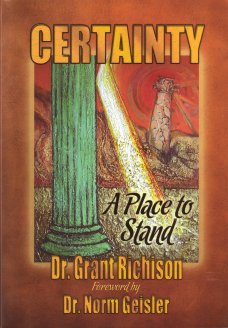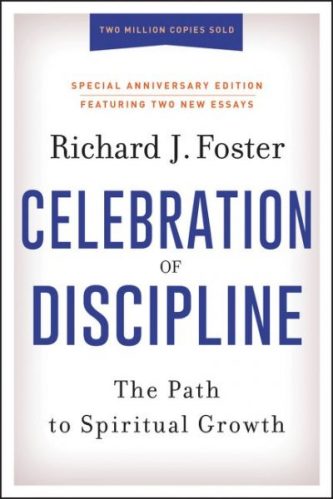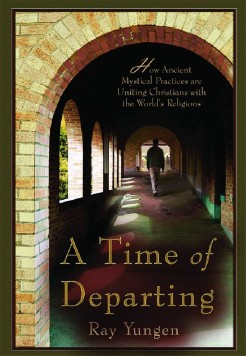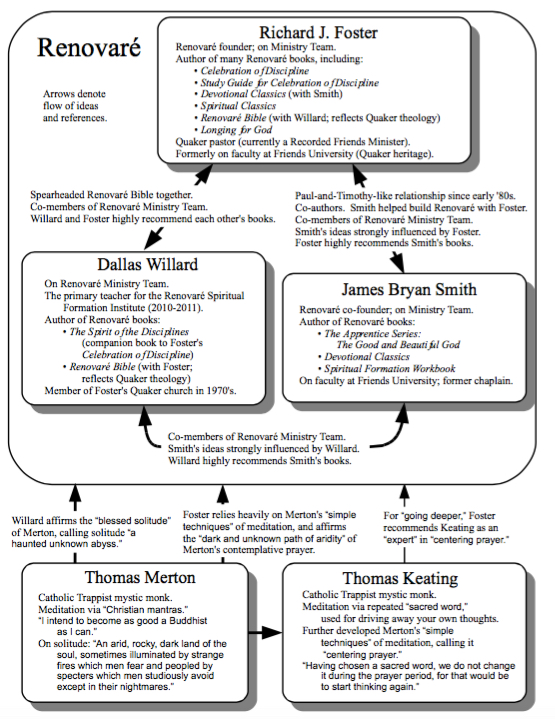“25 yrs ago I lost the Christianity of my youth. Found a deeper faith embracing silence, centering prayer, doubt, mystery, Jesus. Recognized my own deep brokenness & moved toward the brokenness of the world. 25 yrs later, the world’s overwhelming pain pushes me again into silence.”
(481) DUMBING DOWN CHRISTIANITY – Emerging Trends in the Church Today
The Tragedy of Dumbing Down Christianity
I came across this article in Relevant Magazine which caught my attention. The article discusses a subject matter that is truly very relevant to American Christianity – not only today but also in trends that span the last couple of decades in the church.
It is sometimes difficult to find an article of this importance when reading through Relevant Magazine (as with other journals such as Christianity Today). But, it is very encouraging to read this article because it touches on a building block of the faith that in some cases has been weakened or even missing in the church today. If these trends continue, the church tomorrow will move even further from a close walk with the Lord.
For now, let’s just categorize this as discipleship in the church today – is it happening? Is it being implemented effectively? Are Christians growing closer to God as they get to know God’s word?…etc. Instead, what we find more common today is a brand of spirituality that minimalizes the Bible and focuses more on participating in practices that share less from the Bible but instead have more in common with mysticism in the early church and commonly found in Eastern religions today (e.g. Buddhism). Today, one often hears the phrase of getting deeper into the faith – but it is applied to mean engaging in mystical practices with little to no Biblical justification to support it (non-biblical meditation, spiritual formation, contemplative prayer, breathing exercises….etc.). This replaces basic biblical concepts such as discipleship, studying the Bible, participating in Bible study groups, prayer, meditation on God’s word…..etc.
The Tragedy of Dumbing Down Christianity
We need to get deeper into our faith.
The other day I was in a coffee shop in the mountains, seated near the counter. A guy in his early 20s walked in wearing a TOOL shirt and a long ponytail. I could overhear his conversation as he approached the barista and they began chatting. Somehow it came up that she attends a Christian university and he clearly didn’t approve.
“Do they incorporate religion into all the classes there?” he asked. “Even the science classes? How does that work?”
She valiantly began explaining how they pray before every class and teach from a Christian worldview, but it soon became evident that she was being crushed in this conversation. He was well-schooled in the writings of Dawkins, Hitchens and Nye, and began doling out the punishment.
I use the word punishment because this poor barista has herself been punished by a church system which, for the past 200 years, has begun discarding intelligence in favor of emotion, conversion experiences and passion. Ask most American Christians today any question deeper than “Does God love everyone?” and you’re bound to get some sort of response suggesting that that sort of discourse should be reserved for theological universities.
The other day, a friend of mine said he sees no merit in understanding Calvinism or Arminianism because he just wants to love God and love people. And it seems that the ball stops there for most Christians today. No need to know any more than that.
We have replaced rich, robust theology in the Church with emotional music and constant reminders that “God is love and loves you and He’s your personal Savior and loves your soul …” These words are great at bringing outsiders through the doors (because they’re true by and large) but poor at growing believers into mature witnesses with rich understanding of the deep things of God.
I have found the opposite to be very true. I have found that the more I learn about God, His Word and theology which describes Him, the more I can love and worship Him, because now there is that much more to adore and be amazed by. If my ability to worship God is a fire, learning more about Him only adds more wood to the blaze. After all, if you really loved God, wouldn’t you want to learn as much about Him as possible?
Our logic is pretty backward here.
Quite honestly, I’m exhausted by Christians who don’t want to learn more. It’s one thing to not know much about our faith, but another to have no desire to grow.
I’m saddened that atheists are so passionate about what they believe that they will read stacks of books in order to define their beliefs, while we are happy to float along the surface with a “Hillsong-deep theology” and call it good. And we wonder why people are leaving the Church in droves.
A church that offers only emotional, feel-good theology is going to lose the long-term wrestling match to a well-read and convincing atheist nearly every time.
Puritan Cotton Mather wrote, “Ignorance is the Mother not of Devotion but of HERESY” (caps lock his).
The mushy-gushy can only last so long.
Just as a marriage cannot be sustained by the tumble of infatuation, a life of faith cannot be sustained by passionate emotion. Yes, it may be a wonderful (and necessary) entryway, but without depth of knowledge and understanding, it will be “blown here and there by every wind of teaching and by the cunning and craftiness of people in their deceitful scheming” (Ephesians 4:14).
One of my theology professors is so passionate about this issue that he has brought up the same metaphor at least three times this semester. It goes something like this:
Why do people say they want to ‘know God, but not know about Him? That is absolutely ludicrous!
Imagine if I told you, “I love my wife, but I don’t know anything about her.” You could ask me where she was born and I would shrug.
What type of music or food does she like?
I don’t know.
What color are her eyes?
No idea. But I love her.
See how insane that sounds? The more you come to know about someone, the more you are able to love them.
Yet we have no problem floating on the surface of our knowledge of God. And then we wonder why we have such trouble witnessing to others or describing what we believe or why we believe it to others.
J.P. Moreland, in his book Love the Lord Your God With All Your Mind, demonstrates how the Second Great Awakening led to the beginning of emotional preaching and impassioned calls to a quick conversion experience, as opposed to a period of contemplation, learning and discovery of the Christian faith and doctrines. We live in the fallout of that style of thinking. Moreland writes, “The intellectually shallow, theologically illiterate form of Christianity … came to be part of the populist Christian religion that emerged.”
I was fascinated to learn that the Church was once the place where believers came to learn deep theology and robust doctrine, but now that seems to be reserved only for biblical universities. Nowadays anyone can start a church, and as long as it’s engaging and entertaining enough, people will show up. Never mind if it’s true or not (Case in point: The pastor of the largest church in America doesn’t even have a bachelor’s degree, much less a seminary degree and look where that leads.). This all helps me realize why people are seeing less and less need for the Church. After the initial emotion has worn off, what does it really have to offer?
It should not only be pastors, authors and theologians who study what they believe, but all believers. Jesus Himself stated that the greatest commandment is to love the Lord your God with all your heart, soul, strength and mind (Luke 10:27), yet we tend to overlook this last one and focus on the heart and soul.
God paints an intense fate for those who neglect to grow in their understanding in Hosea 4:6, “My people are destroyed for their lack of knowledge. Because you have rejected knowledge, I also will reject you.”
So let’s not get destroyed and rejected, eh?
It’s not too late for Christians to learn in their understanding of the holy. It’s not too late to learn the meaning and value of our creeds, doctrines, and systems. There is merit in learning and understanding the deeper parts of our faith and I say we start sooner than later.
If you’re reading this and thinking, Gee, I would love to come to a deeper understanding of God but don’t know where to start, I’ll give a few great starting points here. Additionally, if you’re reading this and thinking, Gee, I don’t really learn that much about the Bible or God at my church, it just kind of hypes me up, it may be time to change that. Begin by talking to your pastor about it before going church shopping.
Here are some books which are very easy to read and introduce us to cursory facets of the Christian faith:
Delighting in The Trinity: An Introduction to the Christian Faith by Michael Reeves
Desiring God: Meditations of a Christian Hedonist by John Piper
Mere Christianity by C.S. Lewis
The New Lonely by me
Enjoy!
A version of this article appeared on ethanrenoe.com. Used with permission.
(480) POSTEVANGELICAL, POSTCONSERVATIVE, POSTMODERNISM (Part 1) – Emerging Trends in the Church Today
CERTAINTY: A PLACE TO STAND (Part 1)
(1) INTRODUCTION
A very useful book by Dr. Grant Richison with a Forward by Dr. Norm Geisler.
Richison, G. C. (2010). Certainty, a Place to Stand: Critique of the Emergent Church of Postevangelicals (pp. 19–20). Grant C. Richison.
The book describes the rampant uncertainty in the church today. So much so that some of the most popular Christian teachers and leaders actually have their own brand of theology that teaches uncertainty as true doctrine.

Dr. Geisler states that “In a day when the evangelical trumpet is making an uncertain sound, every Christian leader needs to read this book. It shows the need to be anchored to the Rock in our efforts to be geared to the times. At no time in our generation has there been a greater need and a clearer call to return to a surer foundation than that which is laid for our faith.”
The book is a critique of the EMERGENT CHURCH of POSTEVANGELICALS.
Richison also promotes a few other books that will give the reader a view of the POSTCONSERVATIVE MOVEMENT for what it really is:
- The Evangelical Left by Millard J. Erickson (Baker Books, 1997)
- Becoming Conversant with the Emerging Church by D.A. Carson (Zondervan, 2005)
- The Courage to be Protestant by David Wells (Eerdmans, 2008)
- Reclaiming the Center: Confronting Evangelical Accommodation in Postmodern Times edited by Millard J. Erickson, Paul Kjoss Helseth and Justin Taylor (Crossway Books, 2004) – critiques Renewing the Center by Stanley Grenz.
- The Emerging Church, Undefining Christianity by Bob DeWaay (Bethany Press International, 2009)
- Evangelicals Engaging Emergent: A Discussion of the Emergent Church Movement (B & H Academic, 2009) is a balanced book critiquing the emergent church movement.
- Why We’re Not Emergent (by Two Guys Who Should Be), by Kevin DeYoung and Tel Kluck (Moody, 2009).
(2) DEFINITIONS:
It important to familiarize yourself with important terms that today are part of the common Christian vernacular. Throw in several words originating from Eastern mystical religions, your grasp of the contemporary language scene would be complete.
First, Richison differentiates postmodernism between philosophical and functional:
Philosophical postmodernism is a belief in a system; the function of postmodernity manifests itself in how people live their normal lives but without a clear understanding of the philosophy. Philosophical postmodernism gives no direct extrapolation to functional postmodernism; we find functional postmodernism in television, movies, and business. Not all postmodernity (the function) comes from postmodernism (the philosophy)
Certainty is lack of doubt about some state of affairs. Certainty admits degrees. Evangelicals do not affirm certainty about all things exhaustively. A proposition is certain if no other proposition has greater warrant than it does.
Absolute certainty is lack of any doubt. The Bible presents its thoughts with certainty, not tentatively (Luke 1:4; Acts 1:3). God’s Word is the criterion for truth. Certainty comes by an act of God through the Holy Spirit (1 Corinthians 2:4–16; 1 Thessalonians 1:5). Absolute certainty is the supernatural foundation for knowledge.
Postmodernism is a catch-all term that covers many ideas. At its base, postmodernism is belief in plurality: no one can come to ultimate truth because people come to truth from their own perspective.
Postconservatism is belief in postmodernism by evangelicals who are sometimes called “postevangelicals.” This is the belief system behind those in the emergent church who want to soft pedal truth.4
Emerging church is a broad term describing churches that seek to contextualize the gospel by method to postmodern philosophy. Not all emergent churches are postconservative in philosophy but are what we call “doctrine-friendly” or “truth-friendly” churches.
Emergent church is a particular term for an official network of contextualizers committed to postmodern Christianity. All their thinking is emerging; they do not claim certainty of truth. They deconstruct previous evangelical thinking about certainty and other essential doctrines of Scripture. They emphasize narrative theology rather than propositional truth. Presentation of Christianity is by missional living rather than by statements of the gospel. They presume that historic evangelicalism is non-authentic, not involved with non-Christians, obsessed with doctrine, and not operating by Christocentric living.5 This group is not “truth-friendly.”
Coherent truth is the basis of the emergent approach to reality, wherein facts and objective truth are not necessary and only a general coherence of an idea is needed.
Correspondent truth is the view that truth must correspond to facts, objectivity, and reality.
Missional is the term used for attempting to incarnate the gospel with personal and community testimony rather than presenting the gospel through propositions. Postconservatives use the word “missional” in the sense of “improving society now.” It is a way to correct society’s evils.
Proposition is that which corresponds to truth; it is the meaning of a declarative sentence. It is not an encounter, event, or personal experience. Biblical propositional assertions correspond to facts and reality.
Spiritual formation is not what evangelicals call sanctification, but it is rather the means whereby emergents use disciplines such as mysticism to make them feel closer to God. This is a non-biblical, extra-biblical idea. Many evangelicals use this term for sanctification and confuse terminology in doing so.
Foundationalism is an approach to reality that builds beliefs on givens. In the case of the Word of God, Christians build their beliefs on givens in the Bible. Emergents want to “rethink” everything. They do not operate on givens. It is important to distinguish the foundationalism of the Enlightenment from the foundationalism of the Bible. Biblical foundationalism does not rest on rationalism or empiricism but on the law of non-contradiction, the validity of the law of causality, and the reliability of sense perception. Without foundationalism we cannot establish truth by categories. Without the law of non-contradiction, it would be impossible to communicate adequately with others. Certainty does not require total understanding to know something for sure. To reject foundationalism is to reject rationality.
=> Just taking some time to understand what these terms mean and how they are used today in the church and by Christians in general is an important first step to understanding the direction the church is heading.
In Part 2, we will go into detail in how widespread these terms are being used by Christians who don’t have clue to their origins and how they are used today.
(447) EMERGING TRENDS IN THE CHURCH TODAY: THE SHACK – Review by Marcia Montenegro
The Shack was one of the free movies shown this past weekend with Projecting Hope.
Several concerns about the new movie, The Shack, based on the best-selling novel by William P. Young. The following article is a review by Marcia Montenegro: http://www.christiananswersforthenewage.org/Articles_TheShack.html
 WHAT’S AT THE BACK OF THE SHACK? A LOOK AT WILLIAM, P. YOUNG’S THE SHACK
WHAT’S AT THE BACK OF THE SHACK? A LOOK AT WILLIAM, P. YOUNG’S THE SHACK
By Marcia Montenegro
Written November 2008
Jesus said to him, “Because you have seen Me, have you believed? Blessed are they who did not see, and yet believed.” John 20:29
Note: Many will say this is fiction and therefore criticisms of Young’s theology in this book are off-limits or irrelevant. But Young is a Christian who places God, Jesus, and the Holy Spirit as central characters in his book, The Shack. Why insert obvious lessons that Mack, the main character, is learning about God, Jesus, and the Holy Spirit if we are to assume that God in this book is fantasy or fiction? The characters who represent God…
View original post 5,235 more words
(478) 40th ANNIVERSARY OF RICHARD FOSTER’S CELEBRATION OF DISCIPLINE – Emerging Trends in the Church Today
40th Anniversary
Time flies when you are having fun. However, a book that has really invaded the Evangelical Church and has dramatically changed spiritual practices like never before is a book by Richard Foster – A Celebration of Discipline. As publishers push to put out a 40-year anniversary edition to seminaries, churches, pastors and lay people, it is important to understand what you are getting into – MYSTICISM and CONTEMPLATIVE PRAYER…..etc.
Christian University Graduate Agrees—Celebration of Discipline/Richard Foster Bypass the Cross—As CoD Soon Celebrates 40-Year Anniversary!

Just as Lighthouse Trails was about to issue a post this week about Celebration of Discipline’s (by Richard Foster) 40-year anniversary announcement (that we received by e-mail this month), we received the following e-mail from a…
View original post 1,214 more words
(478) 40th ANNIVERSARY OF RICHARD FOSTER’S CELEBRATION OF DISCIPLINE – Emerging Trends in the Church Today
40th Anniversary
Time flies when you are having fun. However, a book that has really invaded the Evangelical Church and has dramatically changed spiritual practices like never before is a book by Richard Foster – A Celebration of Discipline. As publishers push to put out a 40-year anniversary edition to seminaries, churches, pastors and lay people, it is important to understand what you are getting into – MYSTICISM and CONTEMPLATIVE PRAYER…..etc.
Christian University Graduate Agrees—Celebration of Discipline/Richard Foster Bypass the Cross—As CoD Soon Celebrates 40-Year Anniversary!

Just as Lighthouse Trails was about to issue a post this week about Celebration of Discipline’s (by Richard Foster) 40-year anniversary announcement (that we received by e-mail this month), we received the following e-mail from a Christian university graduate:
Three years ago this past September, I began my studies at Tyndale University in Toronto, Ontario. Right away, for one class, we were asked to study one author in particular whom I had never heard of, RICHARD FOSTER and his book Celebration of Discipline. I went online to do research and came across your website, and found your analysis of Foster to be spot on. As I read Foster, I realized he had completely bypassed the role of the Cross in bringing man into relationship with God, and instead substituted what he calls the “SPIRITUAL DISCIPLINES”. This is of course heresy.
For nearly sixteen years, Lighthouse Trails has tirelessly tried to warn the church about contemplative spirituality and how it entered the church in the first place largely through Richard Foster’s book Celebration of Discipline.
 The following is a repost of a prior article we wrote about Celebration of Discipline. It would be a good idea to ask your own pastor if he has ever read Celebration of Discipline and if he has, what does he think. And if he has not read the refutation A Time of Departing and is willing to do so, Lighthouse Trails will gladly send him a complimentary copy of it.
The following is a repost of a prior article we wrote about Celebration of Discipline. It would be a good idea to ask your own pastor if he has ever read Celebration of Discipline and if he has, what does he think. And if he has not read the refutation A Time of Departing and is willing to do so, Lighthouse Trails will gladly send him a complimentary copy of it.
=> [HIGH RECOMMEND: A Time of Departing by Ray Yungen. This book opened my eyes to the gradual but definite mission creep of mystical contemplative practices coming into the church.]
First published in 1978, Celebration of Discipline has had a massive influence on today’s Christianity. Unfortunately, the influence has helped to saturate the church with MYSTICAL CONTEMPLATIVE PRAYER and the NEW AGE. Most likely, your pastor has a copy of this book sitting on his library shelves. He may even have it sitting on his desk for easy reach and reference. Richard Foster, a Quaker and the founder of an organization called RENOVARE (meaning renewal), wrote the book, and even he may have had no idea the impact this book would have. But decades later, it is still being read, and in fact, Christian leaders and organizations continue promoting the book.
Foster said in the book, that we “should all without shame enroll as apprentices in the school of contemplative prayer” (p. 13, 1978 ed.). In other books and writings of Foster’s, he makes it very clear that this “CONTEMPLATIVE PRAYER” is the EASTERN-style MANTRA MEDIATION to which mystic monk THOMAS MERTON adhered. In fact, Richard Foster once told Ray Yungen (author of A Time of Departing) that “Thomas Merton tried to awaken God’s people” (at a conference in Salem, OR in the 90s).
Thomas Merton, who said he was “impregnated with Sufism” (Merton and Sufism, p. 69) and wanted to “become as GOOD A BUDDHIST” as he could be (David Steindl-Rast, “Recollection of Thomas Merton’s Last Days in the West”), believed that “God’s people” lacked one thing—mysticism, and this is to what they needed “awakening.” Of Merton, Foster says: “Thomas Merton has perhaps done more than any other twentieth-century figure to make the life of prayer widely known and understood.” (Spiritual Classics, p. 17) And yet, Thomas Merton once told NEW AGE Episcopal priest MATTHEW FOX that he felt sorry for the hippies in the 60s who were dropping LSD because all they had to do was practice the MYSTICAL (contemplative) stream to achieve the same results. (Interview) We couldn’t agree with him more. Both altered states are the same, but we differ from Merton and Foster in conclusions outcome—we know neither leads to God.
Listed under “excellent books on spirituality,” in some editions of Celebration of Discipline, Foster says of panentheist Tilden Edwards’ book Spiritual Friend that it helps “clear away the confusion and invites us to see that we do not have to live the spiritual life in isolation.” And yet, TILDEN EDWARDS, founder of the “Christian”/Buddhist SHALEM INSTITUTE in Washington, DC, said that contemplative spirituality was the “Western bridge to Far Eastern spirituality”(Spiritual Friend, p. 18). On the Shalem Institute website you can find numerous quotes, references, articles, and recommendations to panentheism, universalism, interspirituality, New Age, and Eastern thought.
In Celebration of Discipline, Richard Foster tells us “we must be willing to go down into the recreating SILENCES, into the inner world of contemplation” (COD, p.13.) He goes on to say that the “masters of meditation beckon us.” Just prior to that remark, he quotes Carl Jung and Thomas Merton.
Celebration of Discipline has helped to pave the way for Thomas Merton’s panentheistic belief system. It has opened the door for other Christian authors, speakers, and pastors to bring contemplative spirituality into the lives of millions of people. The late HENRI NOUWEN, a popular contemplative who also followed the teachings of Thomas Merton, made a telling statement towards the end of his life:
I personally believe that while Jesus came to open the door to God’s house, ALL human beings can walk through that door, whether they know about Jesus or not. Today I see it as my call to help every person claim his or her own way to God(emphasis added – Sabbatical Journey, p. 51).
Essentially, the fruit of years of practicing mysticism by Nouwen was a departure from believing the Cross was the only way to salvation. This is the fruit of contemplative spirituality.
Today, countless ministers and ministries are promoting and endorsing Celebration of Discipline. If they really knew what Foster’s “celebration” was all about, we think many of them would race away from the teachings of Thomas Merton and Richard Foster and back to the Gospel of Jesus Christ.
Note: If your pastor or someone you know has a copy of Celebration of Discipline or quotes Richard Foster, be sure and give him a copy of Ray Yungen’s new booklet A Serious Look at Richard Foster’s “School” of Contemplative Prayer. Also, want to know what Spiritual Formation is (and its dangers), read this: Is Your Church Doing Spiritual Formation? (Important Reasons Why They Shouldn’t
Quotes by Richard Foster:
“Spend some time this week listening to contemplative music designed to quiet you, settle you, deepen you. (Compact discs and tapes from the TAIZE community, JOHN MICHAEL TALBOT, and the Monks of Weston Priory are especially helpful).” Renovare’s Perspective Newsletter
“We now come to the ultimate stage of Christian experience. Divine Union…. Contemplatives sometimes speak of their union with God by the analogy of a log in a fire: the glowing log is so united with the fire that it is fire.” (Prayer: Finding the Heart’s True Home, p. 159)
“Christians . . . have developed two fundamental expressions of Unceasing Prayer. The first . . . is usually called aspiratory prayer or BREATH PRAYER. The most famous of the breath prayers is the Jesus Prayer. It is also possible to discover your own individual breath prayer. . . . Begin praying your breath prayer as often as possible.” (Prayer: Finding the Heart’s True Home, p. 122) [LT Note: Remember, Rick Warren promoted breath prayers in The Purpose Driven Life.]
(1477) IT’S EASY TO CONNECT THE DOTS – Emerging Trends in YOUR Church Today
NOT MUCH OF A MYSTERY
If you base your views on the Bible, one can easily see the contradictions, discrepancies, aberrant, and sometimes false teachings involved within popular movements today such as the Emerging Church. The problem is that many of these inclinations and teachings go unchecked and become normalized within the church. People become desensitized to their jargon and common definitions that have been used by the church for centuries change to a more ancient usage or outright usage more commonly found in other religions (Eastern religions). The Evangelical Church is in a free-fall in regards to this effect. Seminaries are required for accreditation to include these new teachings – each generation of church leaders and pastors are being exposed to these different teachings that emphasize a mystical approach to faith – one that hasn’t been a part of historic Evangelicalism and one that deviates from the Reformation view.
What does this mean to YOU?
The teaching which you ingest by hearing sermons and lectures in Sunday School classes, discussions with friends, sermons from the pulpit, church resources in the library, seminary professors teaching classes, books authored by well-known writers and teachers…..etc. all can affect your learning and can either be used to grow your walk in faith or stunt your walk in faith. Because of the subtle nature of this effect, it becomes increasingly difficult to identify these items and the potentially adverse effects of exposure to these teachings.
Lynne Hybels (wife of the mega church founder of Willow Creek, Bill Hybels), recently said the following:
She said she lost her Christianity of her youth and found DEEPER faith embracing SILENCE, CENTERING PRAYER, DOUBT, MYSTERY……etc. Her mysticism is beyond opinion – each of these descriptives carries with it a great deal mysticism directly from ancient Roman Catholic saints and commonly found in Eastern Mysticism.
This is just one view of the adverse effects of where mysticism can lead. In my Growth Group class at church, I have come across several examples of mysticism having an adverse effect on a person’s walk.
Let’s look at a few examples in the areas of popular Christian books and teachings from popular Christian leaders. This chart shows how MYSTICISM (i.e. CONTEMPLATIVE) influences Christians in the church (laypeople and pastors) using very popular books and teachings from commonly known leaders.

Who hasn’t heard of CELEBRATION OF DISCIPLINE by RICHARD J. FOSTER? It is one of the most popular Christian books sold within the last 20-30 years. It is highly acclaimed by Christians journals such as Christianity Today and is commonly used in churches and seminaries across many denominations. Details of this book can be found in other postings on this blog. For now, let’s just look at how easily one can follow a trail from RICHARD FOSTER back to MONASTIC practices found in ancient ROMAN CATHOLICISM. These include the repetition of words or phrases (i.e. mantras) during prayer and meditation – something clearly Jesus told us not to do in our prayer time.
You can see that popular authors such as RICHARD FOSTER and DALLAS WILLARD have been heavily influenced by ROMAN CATHOLIC monks who teach principles of mysticism. They admit that they learned some of these principles from BUDDHIST MONKS visiting their monasteries. THOMAS MERTON, a Roman Catholic monk is quoted in the chart as saying that he wants to be as good as a BUDDHIST that he can.
You can see how they have influenced (connect the dots) popular Evangelical writers today than many Christians have no idea that they are “under the influence”. These monks commonly hold retreats today teaching others (Catholics, Protestants, Evangelicals, Buddhists….etc.) their view of mysticism and they give people opportunity to spend time in SILENCE and SOLITUDE. While claiming that these principles come from the early church (e.g. the Desert Fathers), it is difficult to find biblical support for their teachings. In actuality, there are more similaries to to NEW AGE (similar to EASTERN MYSTICISM). One of the guest teachers from Alliance Theological Seminary informed our church’s congregation that he routinely spends time in retreats at a local monastery. So much could be said about this but not in this post.
Take a look at just a few quotes directly from these authors and teachers and see if you can differentiate what is biblical and what is a mystical approach to faith. If it is not found in God’s word, does it come from man’s philosophy, church traditions, personal experience? Is biblical teaching suppressed by the promotion of a more imaginative inner workings, intuitive, experiential…etc. view of spiritual issues. Should these be held higher than God’s word in influencing your walk of faith?
BRIAN MCLAREN: “This full, radiant, glorious experience of God in Jesus Christ eventually revolutionized the whole concept of God, so that the word God itself was re-imagined through the experience of encountering Jesus, seeing him act, hearing him speak, watching him relate, and reflecting on his whole career.” (McLaren, 73)
BRIAN MCLAREN: “Think of [i.e. “imagine”] the kind of universe you would expect if God A created it: a universe of dominance, control, limitation, submission, uniformity, coercion. Think of the kind of universe you would expect if God B created it: a universe of interdependence, relationship, possibility, responsibility, becoming, novelty, mutualilty, freedom. . . . I find myself in universe B getting to know God B.” (McLaren 76)
LEONARD SWEET: “Right belief” should not hold the “upper hand over a believer’s authentic experience.” (Sweet)
LEONARD SWEET: Christianity should not be viewed as a “belief system with a distinct worldview,” but as an experiential “conversation” with God and others. (Sweet)
LEONARD SWEET: Christianity is “not primarily a matter of belief,” but rather “immersion and engagement, a full-on experience of life.” (Sweet)
LEONARD SWEET: Sweet wonders with Amos Yong, “what the gospel might look like if its primary dialogue partners are not Plato, Aristotle, Kant, Hegel or Whitehead, but rather Buddha, Confucius, Lao-tzu, Chuang-tzu, Nagarjuna, Shankara, Ramanuja, Chu His, Dogen, Wang Yang Ming, and so on.”
WHAT DOES THE BIBLE SAY?
Each of the above quotes could merit its own posting with an explanation of the concerns involved. Hopefully, you can see a few things that at least should raise a red flag in your eyes. Scripture will help you to see the issues involved:
Beware lest anyone cheat you through philosophy and empty deceit, according to the tradition of men, according to the basic principles of the world, and not according to Christ. (Colossians 2:8)
Let no one deceive himself. If anyone among you seems to be wise in this age, let him become a fool that he may become wise. For the wisdom of this world is foolishness with God. For it is written, “He catches the wise in their own craftiness”; (1 Corinthians 3:18-19)
O Timothy! Guard what was committed to your trust, avoiding the profane and idle babblings and contradictions of what is falsely called knowledge— by professing it some have strayed concerning the faith. Grace be with you. Amen. (1 Timothy 6:20-21)
Let no one deceive you with empty words, for because of these things the wrath of God comes upon the sons of disobedience. (Ephesians 5:6)
Let me conclude with God’s wisdom from His word –
Every word of God is pure; He is a shield to those who put their trust in Him. (Proverbs 30:5)

Recent Comments